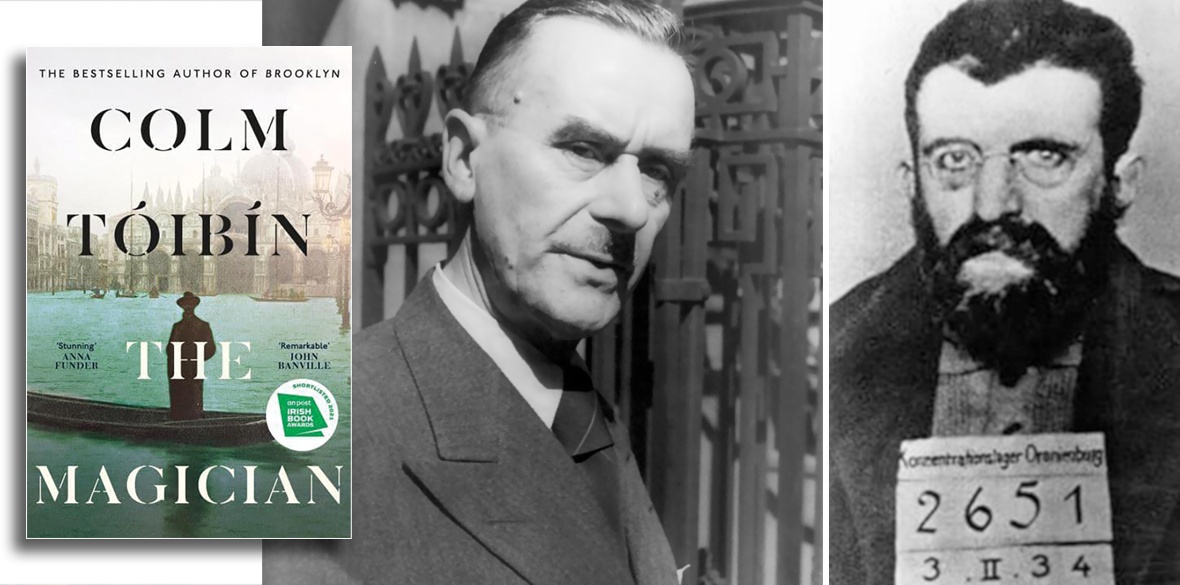This is the last article you can read this month
You can read more article this month
You can read more articles this month
Sorry your limit is up for this month
Reset on:
Please help support the Morning Star by subscribing here
The Magician
by Colm Toibin
Viking £9.49
IRISH novelist Colm Toibin’s novel about the magician, as Thomas Mann was known in his family circle, spans the German’s entire lifetime centring on the man — and his times — the writer, husband, father, brother, and, yes, on his concealed homoerotic fantasies.
Toibin expertly recreates the world of Mann and the turbulent times and does not excuse Mann’s uncritical support for WWI, which was shared by the literary elites. However, Mann’s elder and left-wing brother, Heinrich is an interesting character in his own right in the novel — its recognised moral authority.
During the days following WWI, Heinrich was part of the movement in Munich, supported and led by socialist and communist writers such as Kurt Eisner, Ernst Toller, and Erich Muhsam, which led to the establishment of the short-lived Munich Soviet Republic.
Toibin devotes time to those days of unrest and the anti-revolutionary stance of Thomas Mann and the family. By contrast when Eisner was assassinated after 100 days in office, on February 21 1919, Heinrich Mann gave the oration at the memorial ceremony.
Muhsam and Toller are given considerable importance in Toibin’s book, especially the horrendous fate of Muhsam, viciously tortured and killed in the Sonninburg concentration camp in July 1934. Toller appeals to Thomas Mann to try and help save Muhsam.
“Erich Muhsam is being held by the Nazis ... I know he has been tortured. As he sat alone in his study, it struck him that he could stir up interest in Muhsam’s case in the wider world, maybe even in America, but this might make things worse for him.”
Thomas Mann also comes under pressure from Heinrich and his own children Klaus and Erika to take a clear stand against nazi Germany and to urge the US — where they emigrated to in 1939 — to join the war. All three are very active in the anti-fascist struggle.
The question of citizenship understandably dominates the family after leaving Germany. Erika takes fate into her own hands and enters a marriage of convenience with WH Auden.
When Auden and Christopher Isherwood meet the Mann family in Princeton, Toibin writes rather dismissively of both English writers and also of Virginia Woolf. Auden biographers have noted how grateful the Mann family was to him and it would appear that perhaps Toibin is using poetic licence. It is also inconsistent with historical fact to suggest that Virginia Woof stood aloof from the British anti-fascist movement.
True is the harassment of the family by the FBI who want from Erika to give them “the names of anyone in America who had been involved in the anti-fascist movement in Germany before 1933.” They also interrogate Thomas “about Bertolt Brecht and his associates.”
US secret services continued to follow Mann and intervene when he goes to Germany after the war by forbiding him to visit Weimar in the Soviet zone: “If you do go, you will find America a cold place on your return.”
But the defiant Mann goes to Weimar and this spells the end of his acceptance in the US. He and wife Katia left the US in 1952 to go to Switzerland. They never returned to Germany to live.










